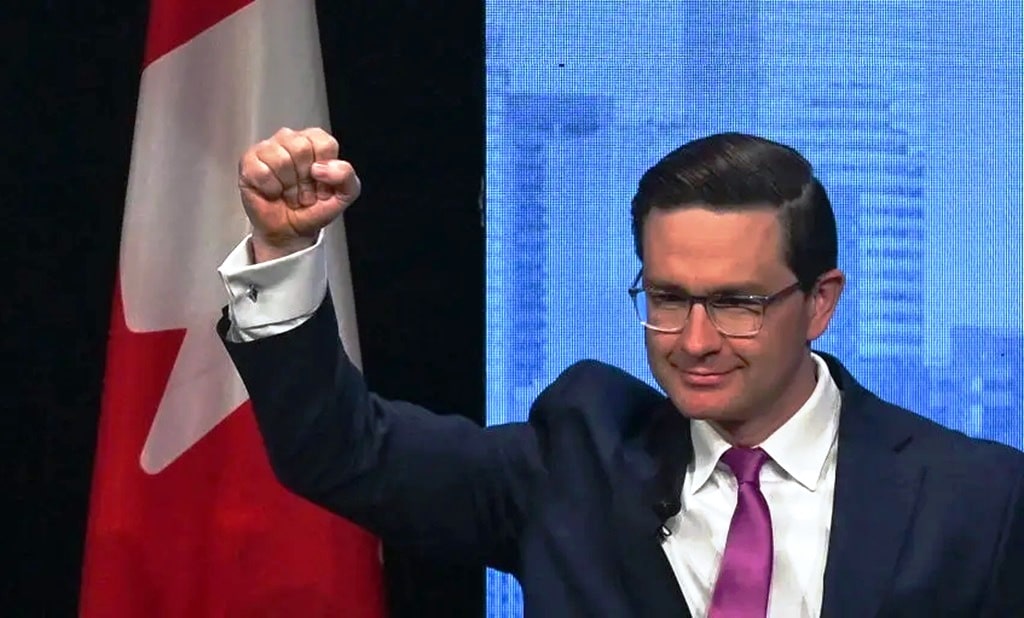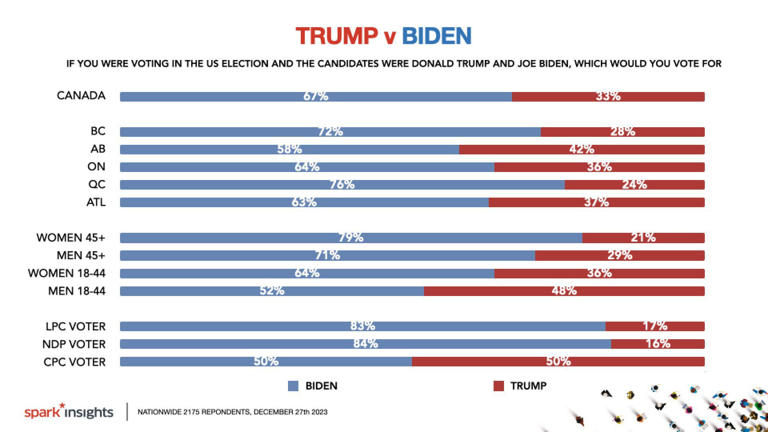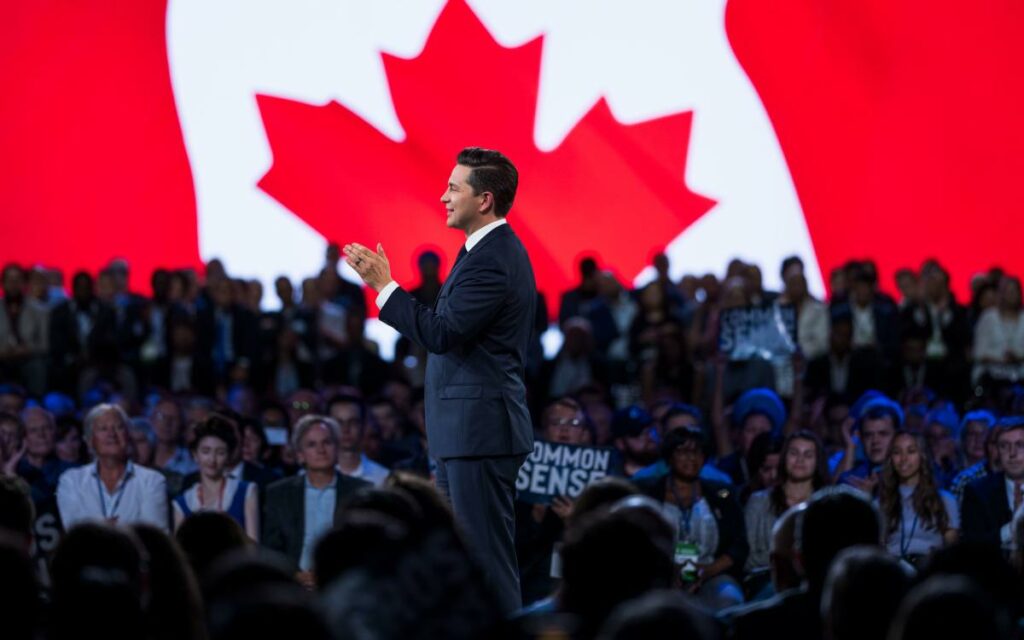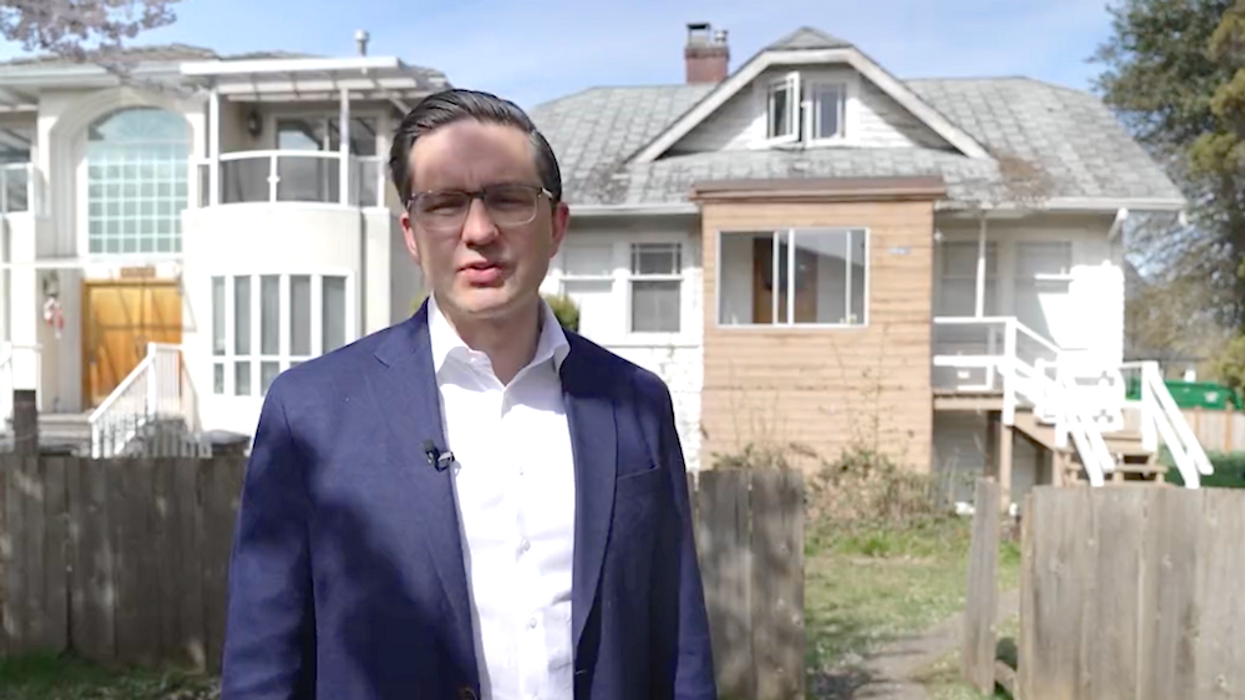Canada’s Prime Minister Justin Trudeau warned Tuesday that if former President Donald Trump wins the U.S. presidential election in November, it will be “a step back” for Canada.
Trudeau, whose progressive-left Liberals took power in November 2015, had tense relations with Trump during his first four-year administration. In 2018, Trump described Trudeau as weak and extremely dishonest.
“It wasn’t easy the first time, and it won’t be easy the second time,” Trudeau remarked in French at a Montreal Chamber of Commerce event.
He said, “But we can’t see ever having it easy with the Americans. The primary obligation of any prime minister is to represent and defend Canada’s interests… we’ve done an excellent job of this in recent years.”
Canada exports 75% of its goods and services to the United States, making it particularly vulnerable to any shift toward protectionism.
When Trump took office, he renegotiated the free trade agreements that bound the United States, Canada, and Mexico.
Ottawa spent nearly two years negotiating a trilateral agreement that benefited the United States above Canadian interests.
Meanwhile, the National Post commissioned a Spark Advocacy poll to gauge Canadian sentiments about the 2024 presidential race, which is no exception. However, the unexpected success of Republican nominee Donald Trump, particularly among young Canadians, may indicate a much bigger shift toward populism than previously thought.
Neither of the two major political parties in the United States has declared their choice for 2024, but Spark asked Canadians about a possible matchup between Trump and the Democratic president, Joe Biden.
Biden was the obvious winner with 67 per cent, while Trump received unexpectedly strong support from 33 per cent of Canadian respondents.
That’s higher than Prime Minister Justin Trudeau’s current approval rating, which the Angus Reid Institute last put at 31%. It’s also somewhat higher than the proportion by which Trudeau won his previous federal election; the Liberals achieved a minority government in 2021 with only 32.62 per cent of votes cast.
However, the survey’s most surprising finding was that younger Canadians were more likely to support Trump over Biden. So much so that young Canadian voters supported Trump more than young voters in the United States.
More than one-third (36%) of Canadian women aged 18 to 44 supported Trump, far exceeding the 21% of women over 44 who did.
Young Canadian men appeared as the most pro-Trump cohort in the poll. According to the survey, most (52%) Canadian men under 44 supported Trump over Biden. This was higher than Trump support among Conservative respondents; those Canadians chose Trump over Biden in 50% of cases.
According to the most recent US polls, young Canadians favour Trump even more than their American counterparts. A YouGov poll last week states that Trump is performing in the mid-30s among voters under 44.
The Spark Advocacy findings align with a growing body of evidence showing young Canadians are flocking to the Conservatives. For months, polls have revealed that young people are the Conservatives’ single greatest support base under leader Pierre Poilievre.
“If someone told me that the Conservative leader would be MORE popular with younger Canadians than older ones a few years ago, I’d tell you you were nuts,” said Abacus CEO David Coletto in September.
According to a recent Abacus Data poll, the Conservatives have a dominant 44% of respondents aged 30-44, greater than the combined NDP/Liberal vote (42%). Even among the youngest voters (18-29), the Tories were the most popular party, with a 32% plurality.
It is an unusual occurrence in any Western democracy for a conservative party to win the youth vote, and it hasn’t happened in Canada since Brian Mulroney’s landslide victory in 1984.
However, Mulroney never witnessed how young Canadians supported him more than their parents and grandparents.
The typical rationale for this is economic.
Rising unaffordability, particularly in housing, has disproportionately affected young people. According to an August Ipsos study, more than half of Canadians under 34 now consider homeownership an impossible luxury reserved for the wealthy.
Poilievre has made housing affordability a cornerstone of his political platform, and his popularity has frequently risen in line with his promises to increase residential buildings and lower home prices.
Even before Poilievre secured the Conservative leadership in mid-2022, he created a successful social media video blaming Canadian housing unaffordability on an entrenched elite of “gatekeepers.”
At the time, Conservatives were still ranking third among Canadian youth. However, an Abacus survey found that six out of ten Canadians aged 30 to 44 agreed with Poilievre’s “gatekeeper” video, and a majority indicated respondents would vote Tory with Poilievre in charge.
However, the Spark Advocacy poll results show that many young Canadians will support a right-wing populist politician, even if the candidate has no clear link to Canadian affordability issues.
Why Canadian young people may be turning toward Trump for the same reason the former president continues to enjoy enormous cult status in the United States: a broad distrust of the establishment.
An Angus Reid Institute poll conducted in March may shed light on this issue.
When Canadians were asked about their overall perceptions of the country, young people emerged as the demographic most likely to believe that Canada was unsafe, unprosperous, and had a broken governmental structure.
Around the same time, a National Post-commissioned Leger poll yielded nearly identical results.
In contrast to the notion of the curmudgeonly senior voter, the study discovered that younger generations were disproportionately unhappy with “how Canada is being managed today,” and more likely to agree with the statement that Canada is “broken.”
New Immigrants Fleeing Trudeau’s Canada Over High Living Costs
New Immigrants Fleeing Trudeau’s Canada Over High Living Costs











